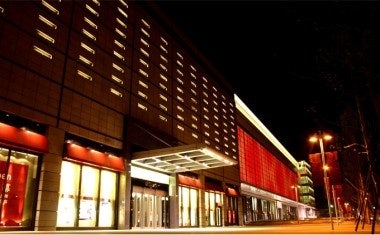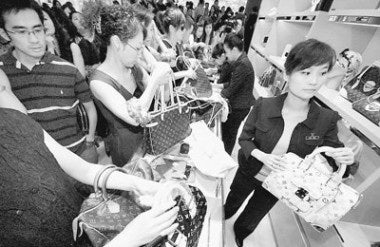Euro Depreciation, Rising Raw Material Costs Partly To Blame#

Over the past several months, the debate about whether China will reduce its notoriously high luxury tax in order to spur more domestic consumption (and increase tax receipts) has reached fever pitch. While some officials have hinted that reductions could be "inevitable", others have flatly denied that they're even a possibility. Meanwhile, a chorus of media commentators have argued for and against the tax cuts, with some advocating higher luxury taxes and others saying they should be abolished completely.
As the debate goes on, luxury brands appear to have taken steps to combat tax cuts before they've even materialized. As an survey by the newspaper Beijing Business Today found this week, major brands have increased prices at Beijing malls, in some cases dramatically, over the past few months. According to the survey, since July 1, Rolex increased prices in mainland China by five percent, Chanel by 20 percent, Celine by anywhere from 200-1,000 yuan, and Lady Dior by upwards of 4,000 yuan. While luxury price increases are nothing new, and certainly not limited to China, Beijing Business Today suggests that the increases are far more dramatic in China than elsewhere, owing mostly to the possibility of luxury tax cuts.
From the article (translation by Jing Daily team):
"For more than a month, prices for better brands have gradually risen", a PR officer at China World Shopping Mall told reporters. Since May, Dior has adjusted the prices of its leather goods, with its classic small "Lady Dior" handbag going from 21,500 yuan (US$3,325) to 25,000 yuan ($3,866) and its medium version rising from 25,000 yuan to 29,000 yuan ($4,484). Cartier, too, increased prices, with its "Rose Gold Diamond Love Series" bracelet going from 64,000 yuan (US$9,896) to 76,000 yuan ($11,752).
Leaving luxury lovers even more anxious is that sale activities have also been reduced. As the China World PR rep told reporters, since major luxury brands have become less interested in discounting, the mall has decided to suspend all promotional activities.
In fact, some luxury brands have raised prices twice within the last six months. This March, Louis Vuitton increased prices in overseas markets an average of five percent. As a staff member at Cartier confirmed, Cartier completed a price adjustment on July 1 of between 8-20 percent. But as early as March 17, Cartier already raised prices 5-10 percent. According to reports, luxury brands increase retail prices once or twice every year, on average five percent each time. However, the interval between recent price increases [in China] is considered unusually short.
Still, reporters found that the price increases did little to dissuade Chinese consumers from shopping. Reporters at the Louis Vuitton and Gucci boutiques at Beijing's Shin Kong Place saw the same busy scene as usual. As a clerk said, "The recent price increases have had no effect. Many shoppers come in here looking to buy a particular item, and don't even ask about the price".

Although a spokesperson for Chanel said the price increases were mainly due to a spike in the price of raw materials like leather, and industry insiders have also pointed at the depreciation of the euro, Beijing Business Today is firmly convinced that the relative strengthening of the Chinese yuan, as well as the possible luxury tax reduction, are mostly to blame, writing:
Industry insiders believe that after China's [rumored] import tax reductions, the retail price gap between major international luxury brands and domestic Chinese luxury brands will be lessened, and since these global brands worry that this would damage their high-end image, they want to increase prices pre-emptively.
As always, it pays to take this survey with something of a grain of salt, since it only focuses on Beijing, but if prices for luxury goods truly are rising faster in mainland China than elsewhere, it could give ammunition to those who argue that the possible luxury tax cuts would have little effect on Hong Kong's luxury market. While some super-rich mainland Chinese will continue to shop locally regardless of price increases (whether out of convenience, "face" or because they simply don't care), consumers who shop around, or head in groups to duty-free Hong Kong once or twice a year to load up on luxury goods, probably won't change their behavior even if luxury taxes are cut. As Jing Daily wrote last month, the Chongqing Evening News reported a cool reception among local shoppers to the tax cut rumors.
According to the Evening News, few Chongqing residents were swayed by the idea of a luxury tax reduction, as they pointed out that China's luxury tax is only one of several fees tacked on to imported high-end goods. Most shoppers interviewed by the paper said prices in Hong Kong or Macau would still be lower even if tax cuts were enacted, so shopping locally for major luxury brands remained out of the question.